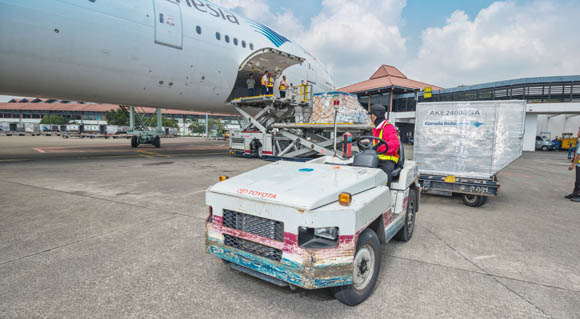Breaking News:
Thursday, 29 December 2016
Air Cargo Connectivity Enhances Global Trade Participation

The International Air Transport Association (IATA) released a study identifying a quantitative link between a countrys air cargo connectivity and its participation in global trade. A 1% increase in air cargo connectivity was associated with a 6.3% increase in a countrys total trade.
Air cargo is key in supporting the current global trading system. In 2015, airlines transported 52.2 million metric tons of goods, representing about 35% of global trade by value. That is equivalent to US $5.6 trillion worth of goods annually, or US $15.3 billion worth of goods every day. We now have quantitative evidence of the important link between air cargo connectivity and trade competitiveness. Its is in the economic interest for governments to promote and implement policies for the efficient facilitation of air cargo, said Brian Pearce, Chief Economist at IATA.
Key policy level and practical industry modernization priorities to improve countries air cargo connectivity identified in the study encompass:
Legislative priorities include the ratification and implementation of:
- 1999 Montreal Convention to enable countries to adopt e-freight
- World Trade Organization (WTO) Trade Facilitation Agreement and World Customs Organization (WCO) revised Kyoto Convention to implement smart border solutions that reduce complexity and costs
The practical industry modernization priorities include:
> Facilitation of electronic processing, through electronic Air Waybills (e-AWB) and e-freight
> Implementation by governments of single window processing - ultimately enabling submission of all regulatory documents for trade via one channel
> Coordinated border agency procedures to reduce duplicative controls
> Implementation of risk management controls at borders to combat illicit activities and facilitate compliant traders
> Implement processes to approve release of shipments in advance of their actual arrival
"Facilitating trade with efficient air cargo processes requires a strong partnership between governments and industry. Governments have the important role of implementing global standards and agreements to facilitate trade and make it possible for airlines to modernize processes. In turn, the industry needs to embrace these opportunities to improve competitiveness and provide customers with enhanced shipping quality, service and better predictability, said Glyn Hughes, Global Head of Cargo, IATA
The study, commissioned by IATA, was conducted by Developing Trade Consultants.
ICT News Feed
March 11, 2025
February 15, 2025
GO Ina
Menteri Perhubungan Dudy Purwagandhi bersama dengan Menteri Dalam Negeri Tito Karnavian melakukan koordinasi dengan Gubernur Lampung Rahmat Mirzani Djausal
…DetailsMarch 13, 2025
Menteri Perhubungan Dudy Purwagandhi terus mengkoordinasikan kesiapan Angkutan Lebaran (Angleb) 2025 dengan Kepala Daerah.
…DetailsMarch 12, 2025
Menteri Perhubungan Dudy Purwagandhi menyampaikan pemerintah telah menyiapkan sejumlah strategi mitigasi guna mengantisipasi lonjakan jumlah pemudik pada Angkutan Lebaran 2025.
…DetailsMarch 11, 2025
Kantor Otoritas Bandar Udara Wilayah VIII Manado pada hari ini, Rabu (11/3) meresmikan Penerbangan Angkutan Udara Perintis Koordinator Wilayah (Korwil) Gorontalo, Sulawesi Utara periode Tahun Anggaran 2025.
…DetailsMarch 11, 2025
